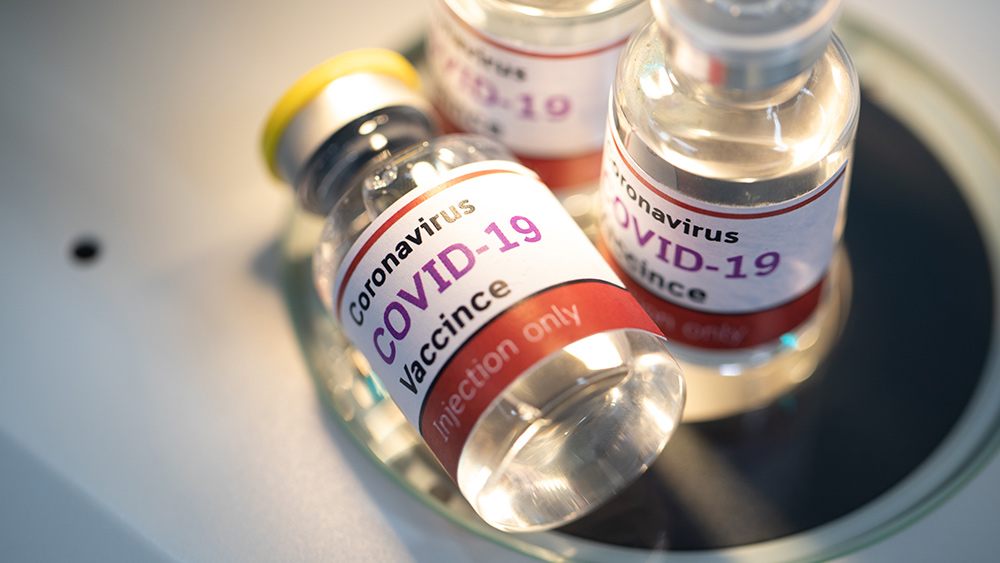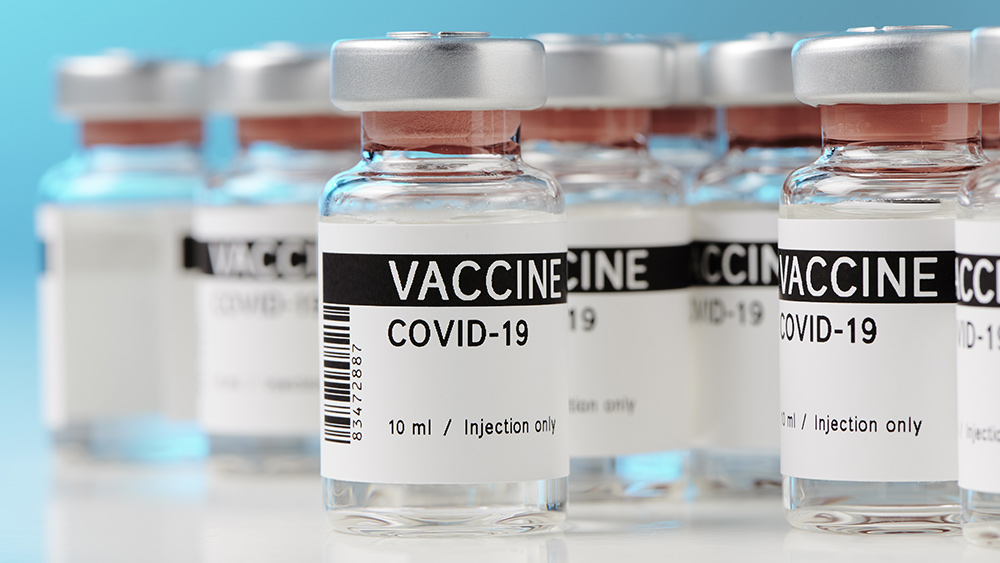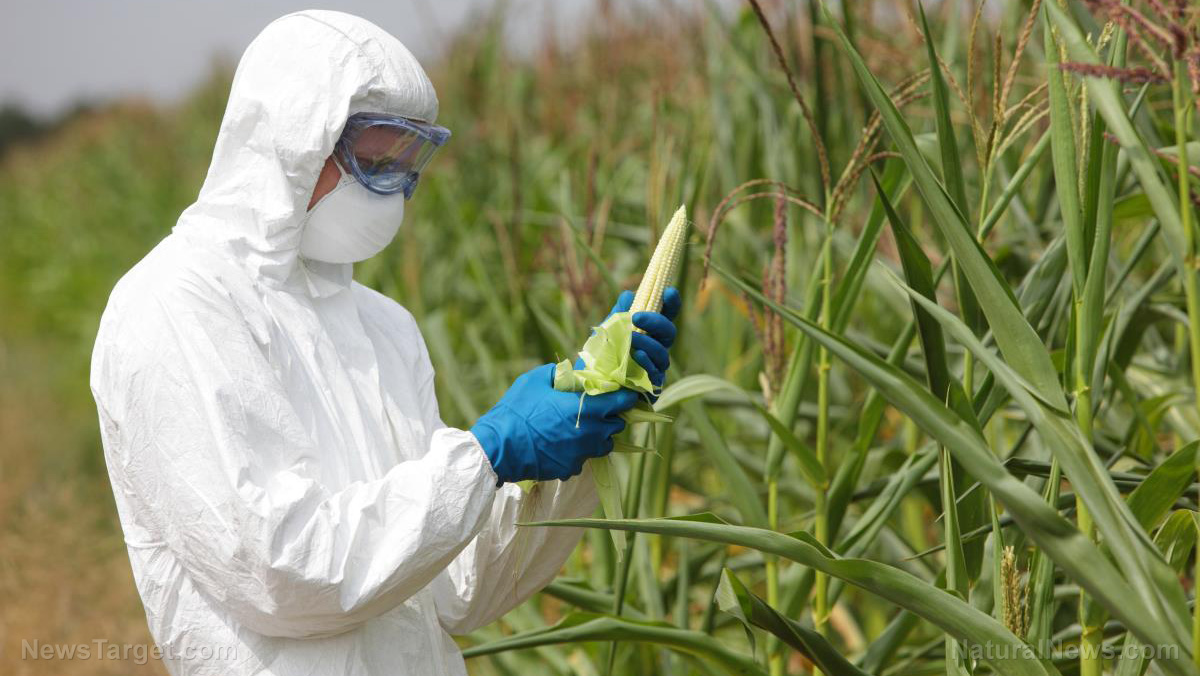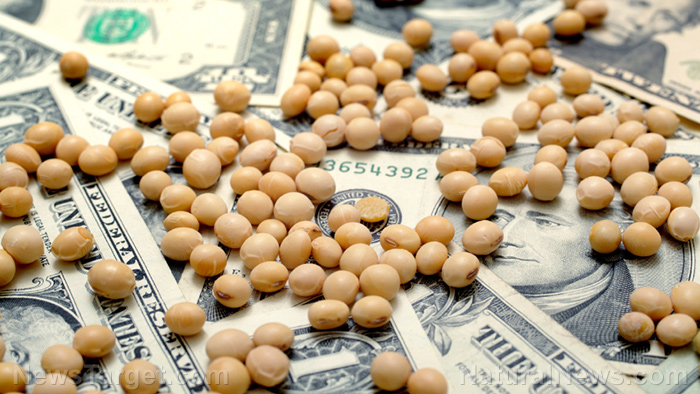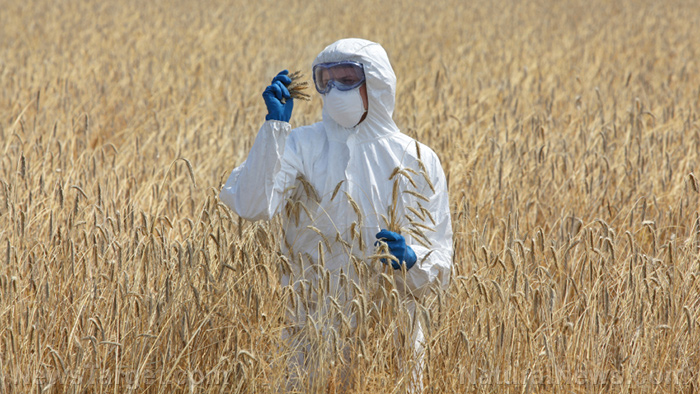FDA admits gene-edited GMOs are being sold on the market
02/08/2021 / By Cassie B.
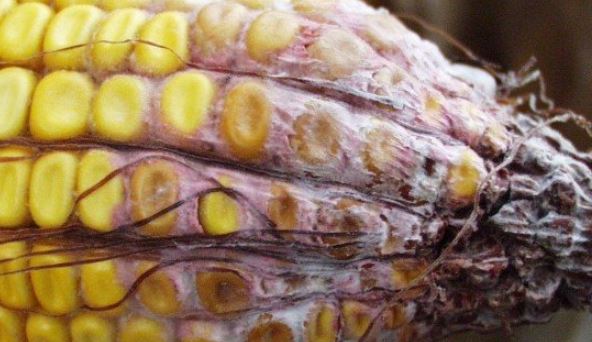
How many gene-edited GMOs have you eaten this week?
Unfortunately, it may be hard to say given the way the FDA is approaching these foods.
Gene-edited foods include those that have undergone biotechnological techniques to change specific DNA sequences within the genomes of living organisms. These are considered the “new” and “more precise” GMOs by manufacturers, and the procedure is being used to edit foods for desired traits, such as stopping some fruit from browning, making it different than the type of genetic engineering used to make a plant resist herbicides.
Because these gene-edited GMOs are being developed quickly, it is hard to say for certain just how many of them are on the market, but it’s important to know because some experts have warned that these techniques could lead to “genetic havoc.”
It’s hard to tell if your food was created using gene editing techniques
When the nonprofit group Moms Across America asked the FDA for a list of the gene-edited GMOs that are currently being sold in American stores, they received an official response stating that the agency does not keep a list of the genetically modified foods being sold on the market.
In their reply, they stated: “Generally, GE foods may contain proteins that occur naturally in a different plant. By using genetic engineering techniques, a protein new to a plant can be expressed. Such proteins may change the nutritional composition of a food, such as causing soybeans to favor the formation of healthier oils, as in Biotechnology Notice 000164. As you can see, FDA evaluates the safety of the GE soybeans and determines that no toxicants are present.”
They also said that companies that want to market GE foods must give the FDA a biotechnology notice demonstrating the food is safe. In other words, they are depending on the very food companies who are going to profit from these foods to tell them whether or not they are safe. How can that not be a huge conflict of interest?
We already know that companies like Bayer/Monsanto have been caught ghostwriting studies that make their products seem safe; they’ve also been known to pay off professors to sign off on these studies that are then used by regulatory agencies in the approval process. This is why Roundup and other deadly glyphosate herbicides are being sprayed on the food sold in our country despite it having been found to cause reproductive harm, birth defects, kidney and liver disease, neurotoxicity and cancer.
In fact, as Moms Across America points out, the FDA’s industry guidance, entitled “Voluntary Labeling Indicating Whether Foods Have or Have Not Been Derived from Genetically Engineered Plants” states that the use of the word “should” in their guidances means something is “suggested or recommended, but not required.” Manufacturers can label their foods as genetically engineered if they want, but they are not obligated to do so.
In reality, most manufacturers are unlikely to admit that their food has been created this way. Many people actively avoid genetically modified foods, and studies have shown just how dangerous they can be. In the case of gene editing techniques like Crispr-Cas9, studies have shown that the procedure can cause unintended genome mutations that cannot be detected. The long-term effects of it are completely unknown, but you don’t have to be a scientist to understand that editing the genes of a plant is completely unnatural and is likely a recipe for disaster.
The costs of developing and marketing food created by this type of gene editing are said to be up to 90 percent lower than that of traditionally genetically modified crops, so the stakes are huge. As usual, the FDA is siding with deep-pocketed food manufacturers rather than fulfilling its stated purpose of actually protecting the American people.
Sources for this article include:
Tagged Under: CRISPR-Cas9, FDA, food science, food supply, gene editing, GMO, GMOs, groceries, ingredients
RECENT NEWS & ARTICLES
COPYRIGHT © 2017 BIO TECH NEWS

